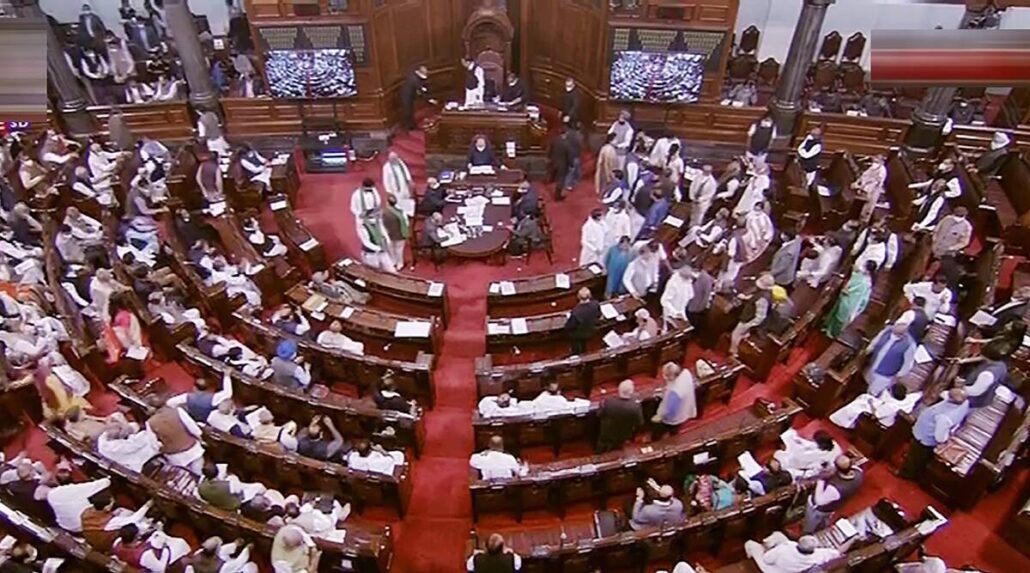
In a heated session at the Rajya Sabha, Bharatiya Janata Party (BJP) Member of Parliament Harnath Singh Yadav introduced the Waqf Repeal Bill 2022, aiming to repeal the Waqf Act, 1995.
The move sparked strong opposition from multiple parties, including Congress, TMC, DMK, CPI, CPI (M), and RJD. The bill’s introduction was eventually approved, with 53 members in favor and 32 against, as reported by PTI.
During the session, Elamaram Kareem of CPI (M) voiced strong opposition, emphasizing the vital role of the Waqf Board in managing religious sites and orphanages nationwide. Kareem expressed concerns that altering such a sensitive issue could potentially lead to communal division among the people and advocated for the rejection of the bill.
John Brittas, another member of CPI (M), asserted that the bill’s primary objective seemed to be creating animosity and polarization among different sections of the population. He highlighted potential far-reaching impacts on society, contravening the principles of harmony embedded in the Constitution.
Other members, including Sandosh Kumar P (CPI), Tiruchi Siva (DMK), and V Sivadasan (CPI-M), echoed similar sentiments, condemning the bill for its potential to instigate communal tensions.
Notably, supporters of the bill were not given an opportunity to present their views during the session, as only those opposing the bill were allowed to speak. The introduction of the Waqf Repeal Bill 2022 has ignited a robust and polarized debate within the Rajya Sabha, reflecting the contentious nature of the proposed legislative change.
What is Waqf?
A waqf, also known as a ḥabs or mortmain property, is an inalienable charitable endowment under Islamic law. It involves donating assets, such as buildings or land, for Muslim religious or charitable purposes with no intention of reclaiming the assets
A charitable trust may hold the donated assets, and the person making the dedication is known as a waqif (‘donor’). The waqf system has its roots in Islamic legal practices dating back to the 9th century AD.
In India, the Central Waqf Council, established in 1964 under the Waqf Act, 1954 (now a subsection of the Waqf Act, 1995), serves as a statutory body advising the government on matters related to the working of State Waqf Boards and the proper administration of Waqfs in the country. Waqf involves a permanent dedication of movable or immovable properties for religious, pious, or charitable purposes, as recognized by Muslim Law, given by philanthropists.
The grant is known as mushrut-ul-khidmat, and the person making such dedication is known as Wakf
What is Waqf Act 1995
Author Profile

Latest entries
 JKNC rally in SrinagarREGIONALApril 15, 2025No rift in NC, No MLA or MP planning to part ways with party
JKNC rally in SrinagarREGIONALApril 15, 2025No rift in NC, No MLA or MP planning to part ways with party Representational ImageINDIAApril 15, 2025Muslim youth killed, four injured in firing during anti-Waqf protests in West Bengal
Representational ImageINDIAApril 15, 2025Muslim youth killed, four injured in firing during anti-Waqf protests in West Bengal REGIONALApril 15, 2025Srinagar sees second highest April temperature ever
REGIONALApril 15, 2025Srinagar sees second highest April temperature ever Photo/ The KashmiriyatWRITE-UPSApril 15, 2025‘Are we destroying our future?’: Cutting of trees fueling a silent health crisis in Kashmir
Photo/ The KashmiriyatWRITE-UPSApril 15, 2025‘Are we destroying our future?’: Cutting of trees fueling a silent health crisis in Kashmir
